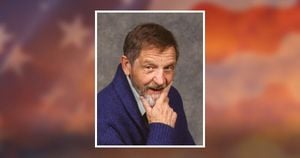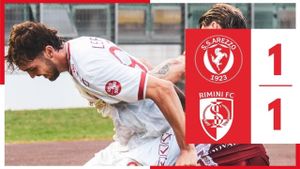The Netherlands has reaffirmed its unwavering support for Ukraine, particularly significant as the country marks the third anniversary of Russia's invasion on February 24, 2025. Prime Minister Dick Schoof, speaking through social media, declared, "Three years of devastation. Three years of death and destruction. Three years of enormous human suffering, and deep sorrow for many families." He paid tribute to the incredible resilience and courage of the Ukrainian people, remarking upon their steadfast belief in Ukraine's independence.
Prime Minister Schoof emphasized the enduring commitment of the Netherlands to ensuring lasting peace for Ukraine, stating, "Whatever happens, it must be a lasting peace. A peace... for all of Europe, and... for the Netherlands, as well." This highlights the intertwined fates of Ukraine and European security as the continent continues to grapple with the repercussions of the invasion.
Minister of Foreign Affairs Caspar Veldkamp echoed these sentiments, calling the Russian invasion "brutal, unprovoked, and illegal," and reaffirming his resolve to support Ukraine. "Until peace is achieved, we must continue supporting Ukraine, ensuring it has as strong a position at the negotiating table as possible: peace through strength," he articulated. His longstanding connection to the nation, stemming back to the 1990s, informs his advocacy for Ukraine on the international stage.
During this pivotal time, the spirit of humanity is evident through the actions taken by the Netherlands. Notably, many Dutch ministries hoisted the Ukrainian flag alongside their own to demonstrate solidarity. Public support within the Netherlands remains strong; recent surveys indicate 68% of residents continue to back Ukraine, even against shifting geopolitical tides.
Despite mixed signals from the United States, which some residents fear may swing toward supporting Russia, Dutch citizens expressed solid resolve to stand by Ukraine. RTL Nieuws reported concerns surrounding narratives from American political figures deeming Ukraine as instigators of the war. Veldkamp noted this shifting sentiment complicates the support discourse, as many believe Europe needs to become self-reliant and increase its defense spending.
Interestingly, the sentiment for stronger UK defense measures has gained traction, with 65% of users supporting the idea of increasing the Dutch defense budget to 3% of GDP. There's even widespread backing for sending Dutch troops on peacekeeping missions to Ukraine, indicating both willingness and readiness within the populace to deepen involvement.
At the governmental level, the Netherlands is among the top five European nations providing military assistance to Ukraine, with total aid calculated at nearly EUR 5.88 billion. This includes advanced military assets such as F-16 aircraft and air defense systems. The recent delivery of 24 F-16 fighter jets is just one example illustrating the depth of this support.
Looking beyond military assistance, Minister Veldkamp also noted the Netherlands's broader humanitarian efforts, showcasing its commitment to international legal frameworks seeking justice for war crimes. He revealed plans for Ukraine to establish a special tribunal emphasizing evidence collection, symbolizing the Netherlands' leadership on this issue.
With the NATO Summit approaching, scheduled for June 2025, Veldkamp asserted the importance of investing more extensively in European defense capabilities. This summit symbolizes not just regional security discussions but also the potential for collaborative military strategies.
Veldkamp's visit to Ukraine reinforces this narrative of unity and support. He expressed admiration for the bravery displayed by the Ukrainian populace throughout the conflict. "We must not forget you are fighting for our security too," he said, underscoring the belief within the Dutch government and society at large of shared stakes across borders.
Across Amsterdam and beyond, the rallying cry is clear: Ukrainians are not alone. The Netherlands stands resolute in its mission to back Ukraine, offering military, political, and civil support to bolster its sovereignty after years of conflict. Speaking of the immense challenges faced, Veldkamp looked toward the future: "We will continue to look at what more we can do. Until peace is achieved, we will remain engaged, ensuring our commitments are met."
With international dialogues focused on establishing justice, and reinforcing defense strategies, the Netherlands' support for Ukraine highlights not just moral obligations but existential security interests shared with all of Europe. This combined advocacy is aimed at both immediate and long-term stability for Ukraine as well as regional allies dealing with the repercussions of heightened tensions with Russia.
Looking to the next century of international relations shaped by this conflict, both Schoof and Veldkamp stress the importance of unity, coordination, and stepping up defenses, echoing sentiments heard throughout Europe as they aim for restoration and peace. The Dutch commitment to supporting Ukraine reflects broader aspirations for European stability as they navigate this precarious geopolitical climate together. "Slava Ukraini!" they resound, reaffirming solidarity and hope for the future.



